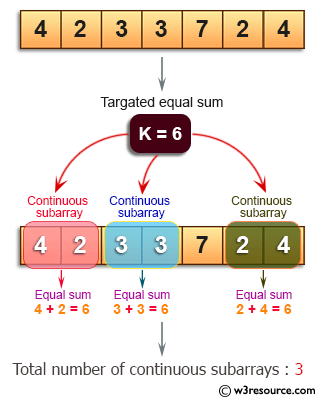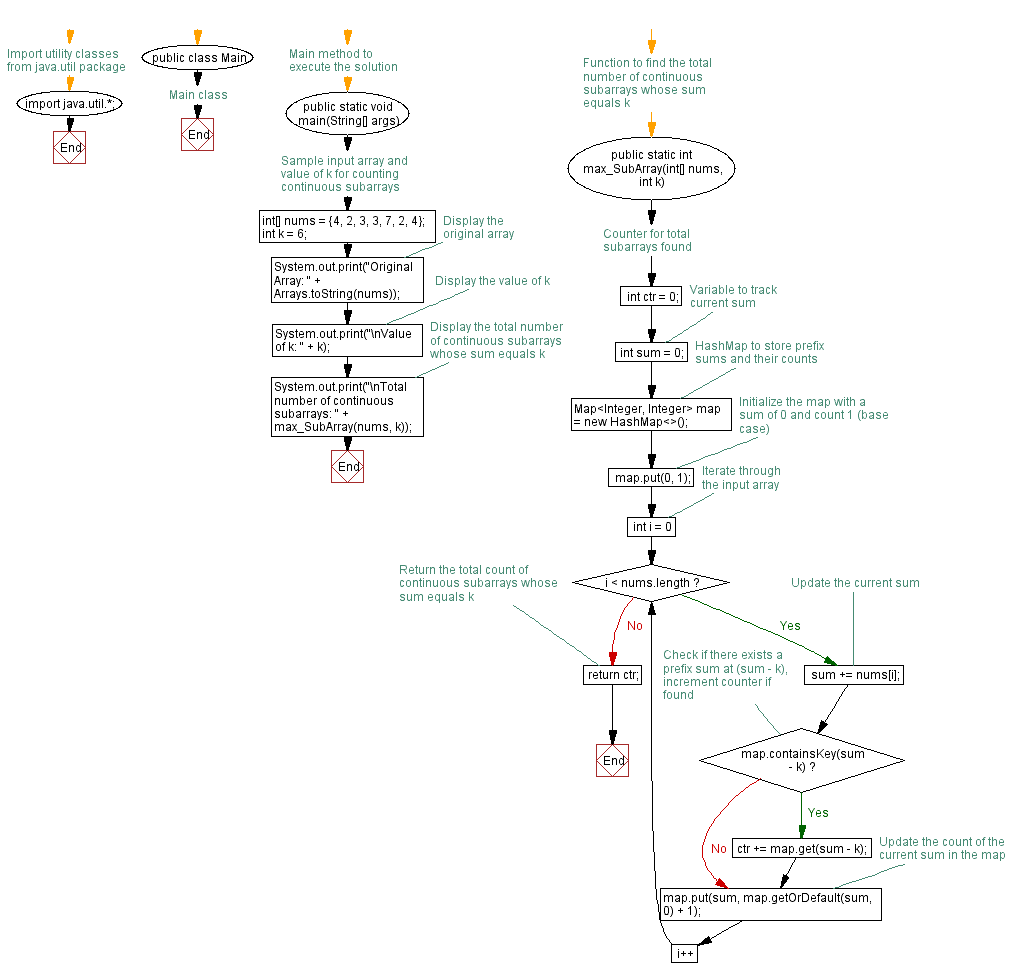Java: Find the total number of continuous subarrays in a specified array of integers
Continuous Subarrays with Target Sum
Write a Java program to find the total number of continuous subarrays in a given array of integers whose sum equals an integer.
Example:
Original Array: [4, 2, 3, 3, 7, 2, 4]
Value of k: 6
Total number of continuous subarrays: 3
Visual Presentation:

Sample Solution:
Java Code:
// Import utility classes from java.util package
import java.util.*;
// Main class
public class Main {
// Main method to execute the solution
public static void main(String[] args) {
// Sample input array and value of k for counting continuous subarrays
int[] nums = {4, 2, 3, 3, 7, 2, 4};
int k = 6;
// Display the original array
System.out.print("Original Array: " + Arrays.toString(nums));
// Display the value of k
System.out.print("\nValue of k: " + k);
// Display the total number of continuous subarrays whose sum equals k
System.out.print("\nTotal number of continuous subarrays: " + max_SubArray(nums, k));
}
// Function to find the total number of continuous subarrays whose sum equals k
public static int max_SubArray(int[] nums, int k) {
int ctr = 0; // Counter for total subarrays found
int sum = 0; // Variable to track current sum
Map<Integer, Integer> map = new HashMap<>(); // HashMap to store prefix sums and their counts
// Initialize the map with a sum of 0 and count 1 (base case)
map.put(0, 1);
// Iterate through the input array
for (int i = 0; i < nums.length; i++) {
sum += nums[i]; // Update the current sum
// Check if there exists a prefix sum at (sum - k), increment counter if found
if (map.containsKey(sum - k)) {
ctr += map.get(sum - k);
}
// Update the count of the current sum in the map
map.put(sum, map.getOrDefault(sum, 0) + 1);
}
// Return the total count of continuous subarrays whose sum equals k
return ctr;
}
}
Sample Output:
Original Array: [4, 2, 3, 3, 7, 2, 4] Value of k: 6 Total number of continuous subarrays: 3
Flowchart:

For more Practice: Solve these Related Problems:
- Write a Java program to count the total number of continuous subarrays whose product equals a given target.
- Write a Java program to identify the longest continuous subarray whose sum is less than or equal to a specified value.
- Write a Java program to find all starting indices of continuous subarrays that sum to a target when the array includes negative numbers.
- Write a Java program to count continuous subarrays with an average equal to a given value.
Go to:
PREV : Divide Array into Equal Sum Subsets.
NEXT : Max Average of Subarray.
Java Code Editor:
Company: Google
Contribute your code and comments through Disqus.
What is the difficulty level of this exercise?
Test your Programming skills with w3resource's quiz.
